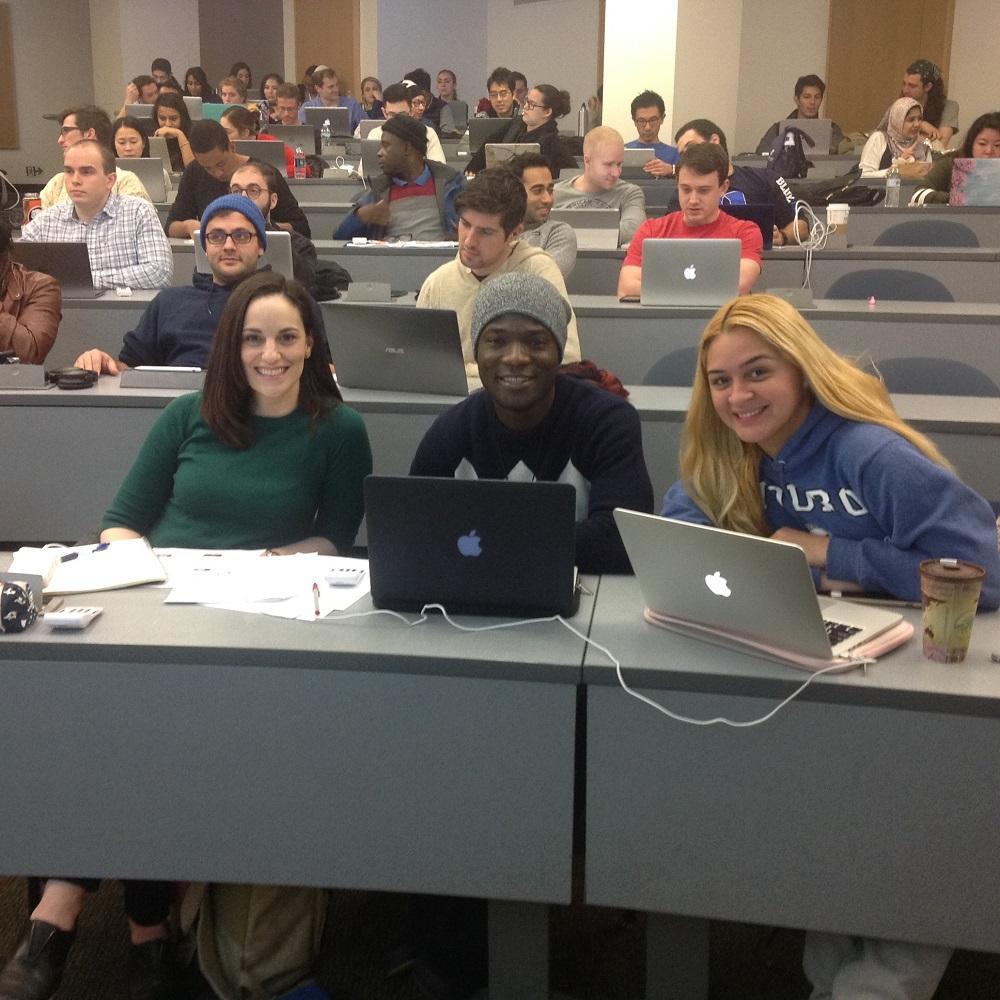News
Interprofessional Education about Cultural Competency
Pharm D. and Medical Students Learn about Health Disparities in Introductory Lecture

Students from Touro College of Pharmacy (TCOP) and Touro College of Osteopathic Medicine (TouroCOM) Harlem gathered mid-January to learn about the cultural challenges they will face as healthcare professionals.
The first lecture of the interdisciplinary “Cultural Competency in Health Care” series was held early Thursday morning at the shared Harlem location of the two schools. The lecture series provides an interprofessional education for students—both in the osteopathic school and the pharmacy school— on how to navigate the shifting cultural waters in order to provide the best medical care. The joint lecture was delivered, and the course is led by, Dr. Jeff Gardere, of TouroCOM, and Dr. Joyce Addo-Atuah, of TCOP.
“Cultural competency isn’t only the way of the future, it’s the way of now,” explained Dr. Gardere. Though he also counseled students not to be too overwhelmed, “cultural competency is a journey, not a destination,” he explained.
The two delivered the introductory essay about the importance of cultural competency as well as the importance of using a team-based, interdisciplinary approach to healthcare.
“The time when the physician was the end-all and be-all in everything is gone,” stated Dr. Addo-Atuah, a former employee of the World Health Organization. “Now we have many complex patients with so many issues and one person cannot meet all their needs.” In an example, Dr. Addo-Atuah spoke of her own research in Ghana interviewing HIV patients and the multidisciplinary healthcare teams treating them.
Dr. Addo-Atuah also focused on the consequences of health disparities and their relationship to proper medical treatment. Being aware of the disparities in healthcare is vital, she explained.
“America spends about twice more health expenditure per capita than any other advanced country,” explained Dr. Addo-Atuah. “But when you compare the health statistics of the population as a whole, we are number 30… Even though we are spending the most, we are not at the top because of the health disparities.”
Dr. Addo-Atuah elaborated that healthcare professionals needed to be aware of social determinants of health, like income, insurance, educational level and environmental factors like ventilation. “Minorities are more likely to be diagnosed with late-stage breast cancer,” she explained, quoting a recent report US health report. “Minorities also account for a disproportionate amount of AIDS cases,” she said.
And health disparities have a cost on both individual and society as late treatments are often more expensive than pre-emptive care.
“It was a good introduction,” noted first-year TCOP student Shani Wolfstein.
Stephanie Yu, OMS I, explained that she felt that learning about cultural competency was an integral part of her journey into the medical profession. “There are many unconscious biases that we need to be mindful of,” she said.
“I think that’s it’s great that we’re being introduced to this,” said OMS I Pavel Medved. “We’re being prepared to go into the field.
Future lectures will be devoted to healthcare in the Hispanic, Asian American, African American and the LGBT communities. Other lectures will touch on religious sensitivities that students must be aware of. In the last stages of the series, teams of Pharm D. and OMS students will work together to evaluate case studies and come up with treatment plans.

